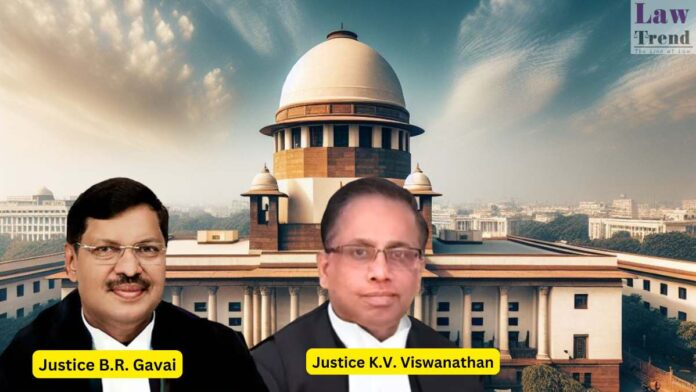In a significant ruling, the Supreme Court of India has clarified that a girlfriend or a woman romantically involved with a married man cannot be classified as a “relative” under Section 498A of the Indian Penal Code (IPC). The bench, comprising Justice B.R. Gavai and K.V. Viswanathan, quashed criminal proceedings against the appellant, Dechamma I.M.,
To Read More Please Subscribe to VIP Membership for Unlimited Access to All the Articles, Download Available Copies of Judgments/Order, Acess to Central/State Bare Acts, Advertisement Free Content, Access to More than 4000 Legal Drafts( Readymade Editable Formats of Suits, Petitions, Writs, Legal Notices, Divorce Petitions, 138 Notices, Bail Applications etc.) in Hindi and English.




